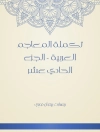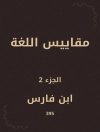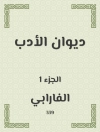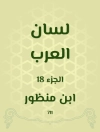WINNER of the 2015 ICA Outstanding Book Award
This path-breaking book explores how solidarity towards vulnerable others is performed in our media environment. It argues that stories where famine is described through our own experience of dieting or or where solidarity with Africa translates into wearing a cool armband tell us about much more than the cause that they attempt to communicate. They tell us something about the ways in which we imagine the world outside ourselves.
By showing historical change in Amnesty International and Oxfam appeals, in the Live Aid and Live 8 concerts, in the advocacy of Audrey Hepburn and Angelina Jolie as well as in earthquake news on the BBC, this far-reaching book shows how solidarity has today come to be not about conviction but choice, not vision but lifestyle, not others but ourselves – turning us into the ironic spectators of other people’s suffering.
Spis treści
Figures viii
Acknowledgements ix
1 Solidarity and Spectatorship 1
Introduction: 'Find your Feeling’ 1
Th e instrumentalization of humanitarianism 5
Solidarity without 'grand narratives’ 9
The technologization of communication 15
The ethics of objectivity 21
Conclusion: on this book 24
2 The Humanitarian Imaginary 26
Introduction: communicating vulnerability 26
The theatricality of humanitarianism 27
Critiques of the theatricality of humanitarianism 36
The humanitarian imaginary 43
Conclusion: on the performances of the imaginary 52
3 Appeals 54
Introduction: the paradox of appeals 54
The crisis of the theatre of pity 55
The controversy around appeals 57
The reflexive styles of appealing 65
Reflexive appeals and their authenticity effects 73
Conclusion: the ambivalence of 'cool’ activism 76
4 Celebrity 78
Introduction: the celebrity as expert performer 78
Theatre, celebrity, authenticity 79
The celebrity controversy 83
The performativity of celebrity humanitarianism 88
'Moments’ of humanitarian performance 90
Celebrity and its authenticity eff ects 98
Conclusion: towards a utilitarian altruism 104
5 Concerts 106
Introduction: rock as ritual ceremonies 106
Aid concerts: communitas or cynicism? 108
An analytics of ceremonial performativity: Live Aid and Live 8 114
The authenticity effects of ceremonial humanitarianism 132
Conclusion: towards a strategic morality of solidarity 136
6 News 138
Introduction: the moral appeal of news 138
The theatricality of journalism 140
The controversy around television witnessing 144
The analysis of narrative aesthetics 149
News narratives: a typology of witnessing 153
The authenticity eff ects of news: from narrative to database 164
Conclusion: objectivity or therapy? 170
7 Theatricality, Irony, Solidarity 172
Introduction: the historical shifts of humanitarianism 172
Post-humanitarianism: solidarity as irony 174
Post-humanitarianism as neoliberalism 179
Beyond irony: solidarity as agonism 188
Conclusion: on being good 203
Notes 206
References 215
Index 232
O autorze
Lilie Chouliaraki is Professor of Media and Communications at the London School of Economics.












